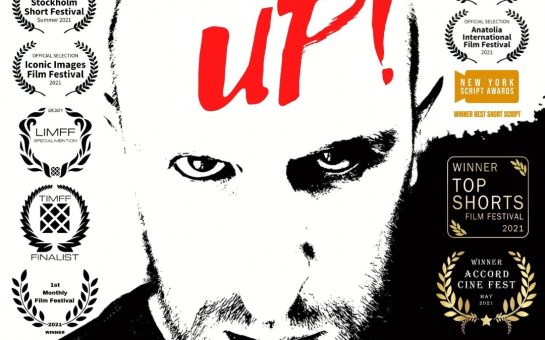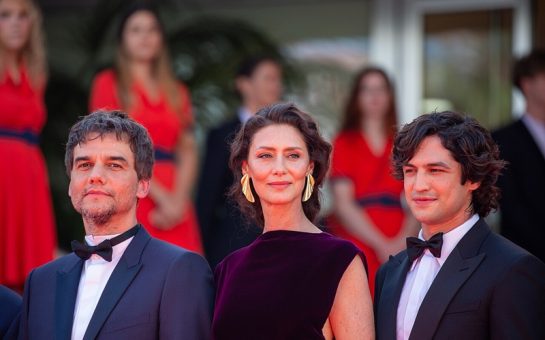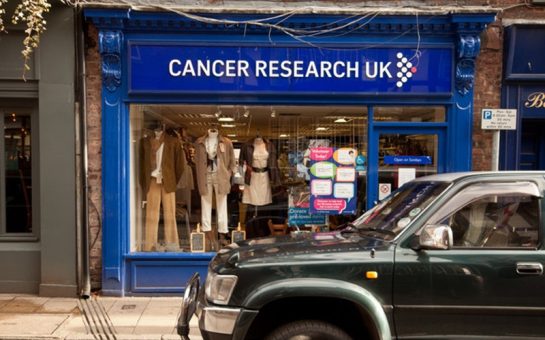Ima Jackson-Obot discovers the lives behind winning film at Happy Soul Fest
By Ima Jackson-Obot
If by some twist of fate, such things as genies existed, Lena’s one wish would have been for the bullies to stop hurting her just because she was a Romany Gypsy.
And these thoughts were possibly running though her mind as she lay on the ground, injured and vulnerable after she had been beaten up by girls from her school.
This is a scene from the short film, Romany Me, based on some of the real events of a young girl’s life and won best film at the Youth Film Awards, during the Happy Soul Festival in April. It is soon to be screened on Sky.
The festival, which is in its third year, was started by Cary Rajinder Sawhney who wanted to raise awareness about mental health in black and minority ethnic and socially excluded groups.
Since its genesis in Merton in 2007, it has expanded from the Asian community to include the Iranian, Korean, Congolese, Somali, Ethiopian, African-Caribbean, Indian, Jewish and Traveller communities.
Romany Me was co-written by a young girl, Tj and her mother, Adele Gregory.
It focuses on a teenage traveller girl, Lena, who after her family are evicted from a travellers site, set up home in a residential area and tells of her journey to overcome the bullying she suffers, by focusing on her passion for dancing.
The film conveys how external factors such as bullying can affect the emotional and mental wellbeing of a person.
It was shot over a period of four days and was completed two weeks before the festival awards night on Thursday April 27.
Adele said: “There had been some really traumatic times at school and for that reason that’s why we wanted to tell her story.”
Sutton Mental Health Foundation, who are involved in the festival, approached the family to write and make a film about the travelling community, and they decided that enhancing their family’s story about the bullying would help raise much needed awareness.
They were meant to write the film for last year’s festival, but it had to be postponed to 2010 due to time constraints, and during that time the family had set up their own community dance and drama school.
They were determined to make it for this year and used some of the children from the dance school to star in it.
“There were points when I thought, ‘what am I doing?’, but the strength and passion given by all to tell this story, was the drive to see the project through,” Adele said.
In one scene from the film, the character that plays her mum says to her: “Don’t let them get to you.”
Lena’s character replies: “They got to you didn’t they?”
Speaking to Adele after watching the film about the experiences, she said: “It broke me and it affected us all.”
She said people might wonder why she simply didn’t move schools, but she explained that if she moved somewhere else, it could happen again.
When things got physical and came to a head the teachers, realised they had to take action, and steps were made to protect and rearrange timetables of those involved.
Cecile Bowie, a Community Development Worker for the Foundation charity, has come into contact with other members of the gypsy and traveller community in Sutton.
And they very often tell her how they have been discriminated against and there are many children from the traveller community who have experienced bullying at school.
“In terms of health it is very difficult for them to trust public service when they have been excluded from British society for over 600 years,” Cecile added.
“The gypsies and travellers have been part of the UK population for over six centuries.”
The issue of the traveller is dominating the news once again, with talks that the Con-Dem coalition government have reversed previous Labour policies that gave incentives for local authorities to develop gypsy and traveller sites.
Cuts have also been announced in the Housing and Communities Agency (HCA) budget, cancelling all next year’s bids for sites.
Another reason why Adele wanted to tell her daughter’s story was to change people’s perceptions about members of the travelling community.
It is a group heaped in stereotypes, often thought of as living in caravans, not very clean, mostly uneducated and prone to violence.
“To be honest, that’s what drove us – if it changed just one person’s opinion – it matters,” added Adele.
The film was directed by award-winning director Julius Amedume, who Adele says took time to learn about her community before directing the project.
Cary said: “It’s against the law to be racist or homophobic, but the kind of issues that travellers experience are not as widely condemned, and are still happening today.
“I found it shocking to find out how much prejudice there was towards this group of people.”
He plans to recommend the film to the London Film Festival and other international film festivals and Adele is hopeful that it might be turned into a full length feature film.
“This is not just a really beautiful film. It is a rare representation of their community,” he said.
“I believe the film deserves to be seen more widely because it is a unique story and there have only ever been five or six traveller movies ever made in the UK.”
With such films like Romany Me, Cary said he wanted to normalise the idea of mental health, not something to be frightened of, but can be a part of life, or caused by circumstances beyond one’s control.
He added that everybody has some degree of mental health in their life be it bereavement, loss or depression, but unfortunately it is mainly schizophrenia and bi-polar which make the news.
Adele started her dance school, after she took Tj out of the dance school she had been in since she was a toddler, because of the bullying she suffered once they discovered her Romany Gypsy background.
It has now grown from nine children to about 50, who are from different cultures and background, partly funded by the council and generates other income through fundraising.
“It has gotten bigger and bigger – we’ve achieved so much in 17 months, it’s a club for everybody,” said Adele.
On the awards night, when Romany Me was announced as the winner, Adele said all 50 of the children jumped on top of her in excitement.
“You had to pull them off the ceiling. What I remember was being hung on by these children and they were coming from all parts of me,” she said.
Adele hopes that in the future Romany culture will become more accepted and that people will be able to distinguish between the different travelling communities.
With Travellers History Month in June, which has been running for three years, Adele believes this will help foster more understanding and remove prejudice.
“The word pikey should be eliminated from the vocabulary. These are not words that people should be allowed to say,” she said.




